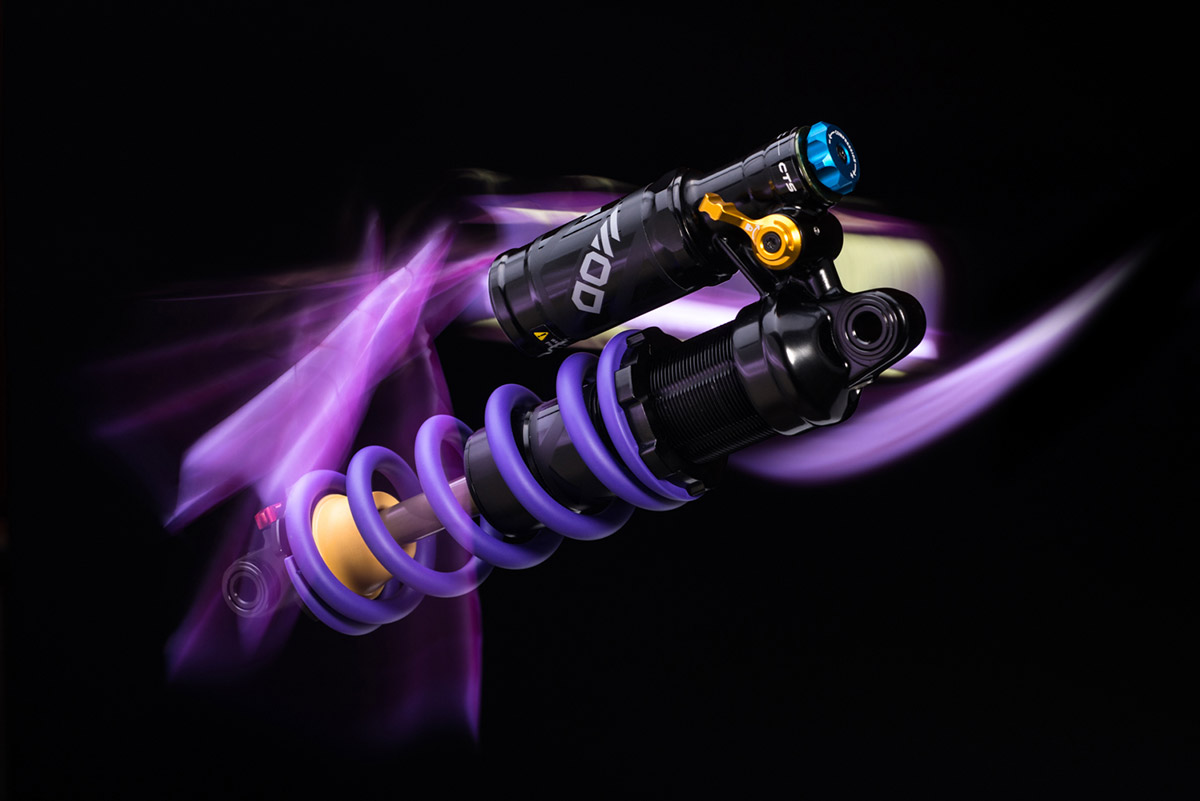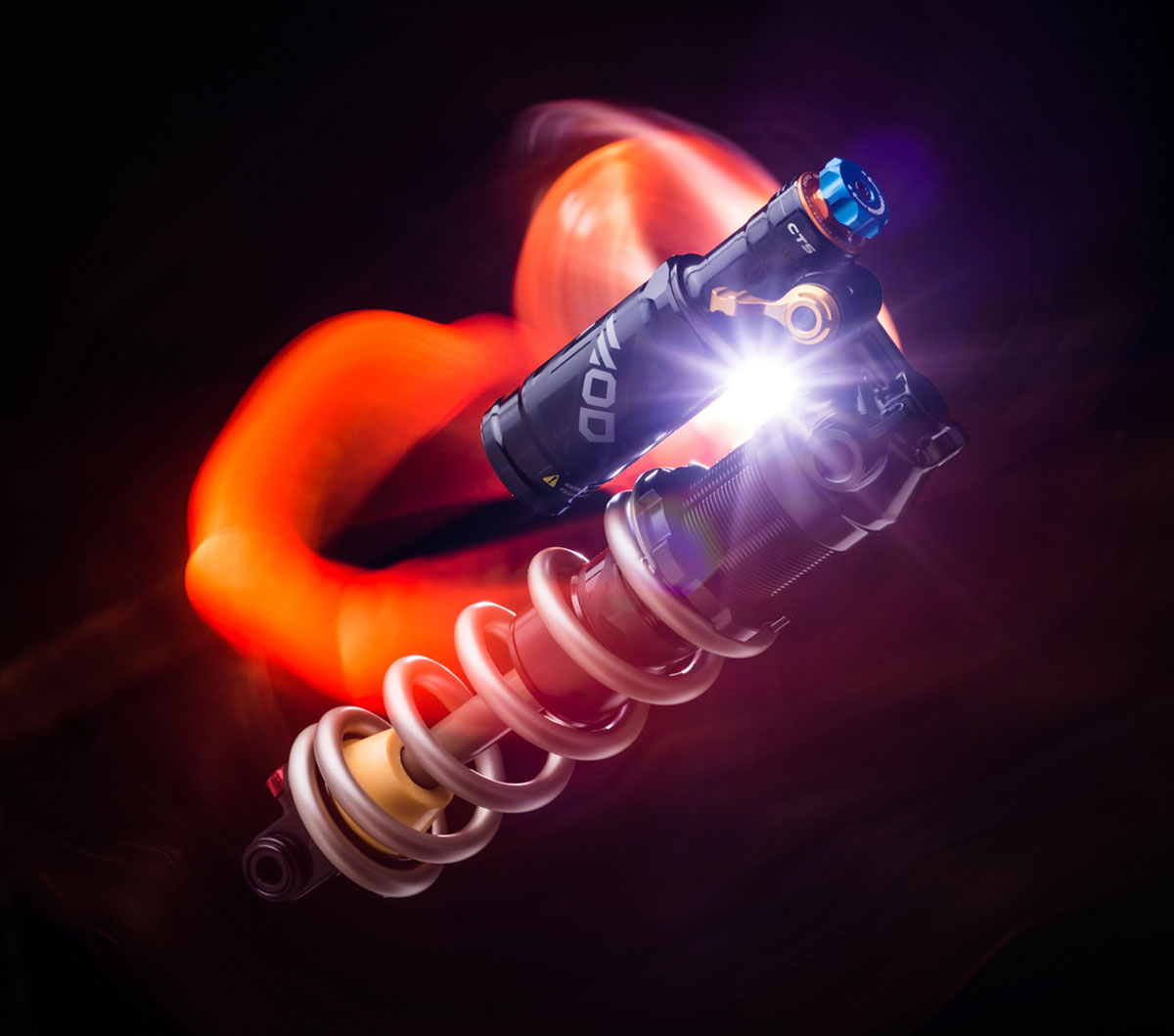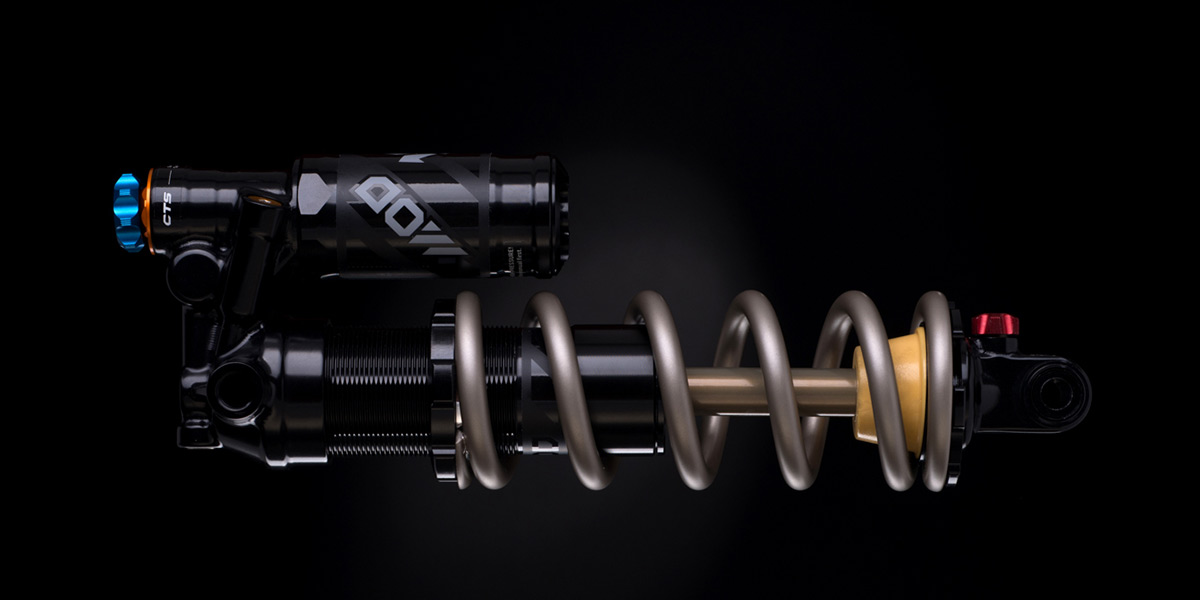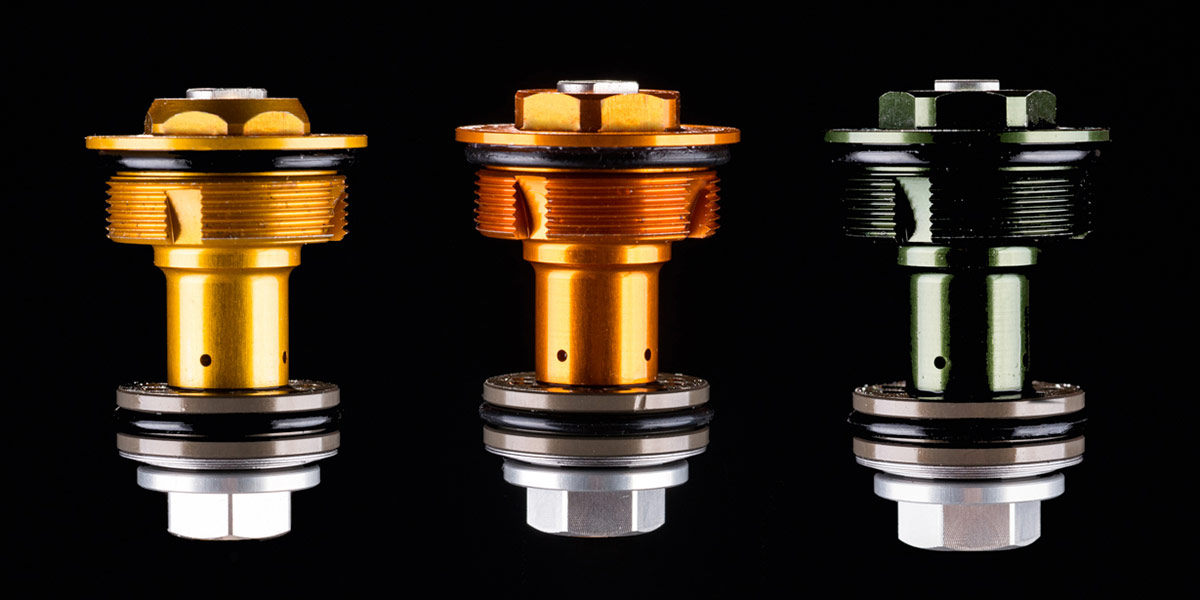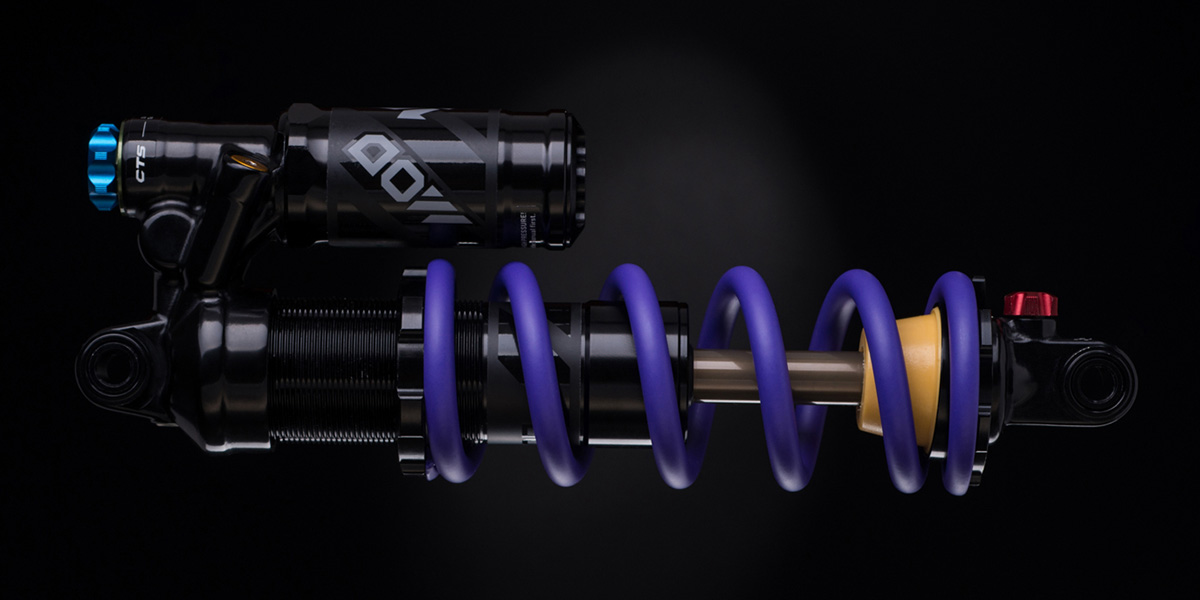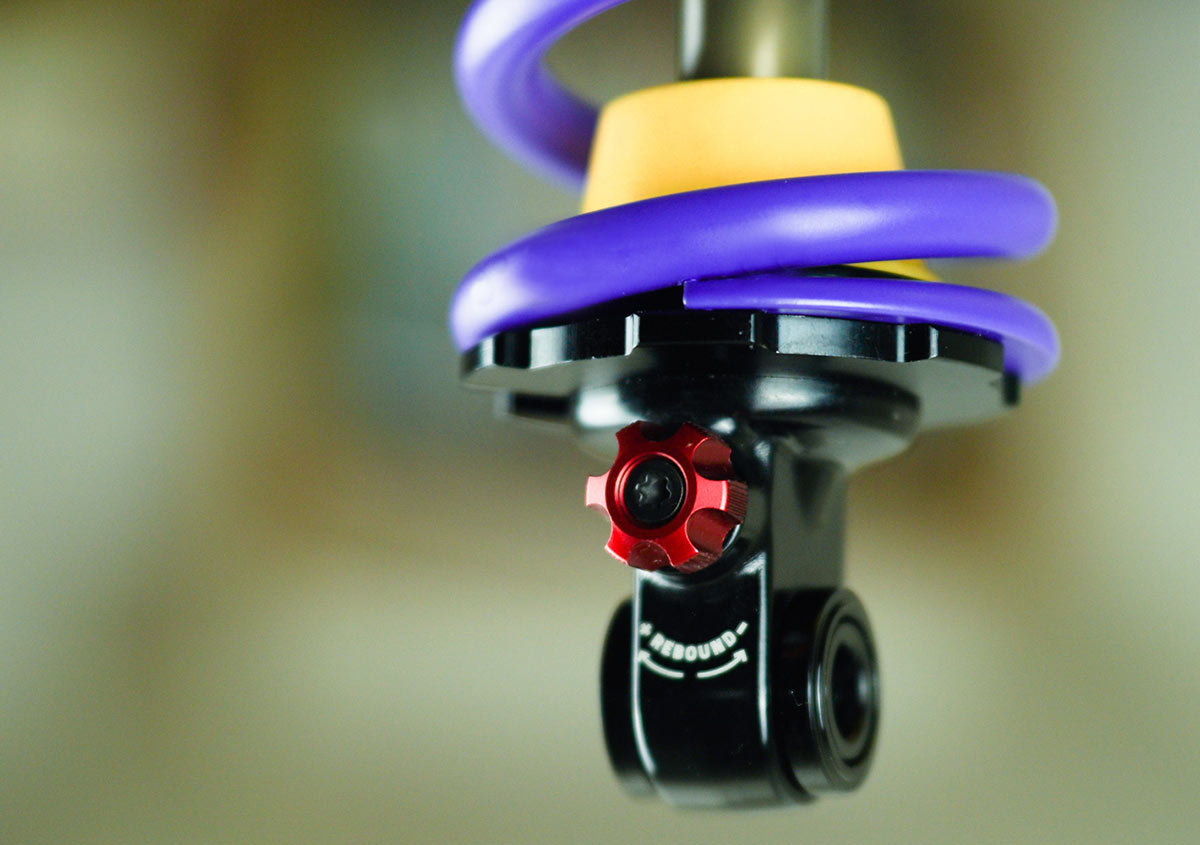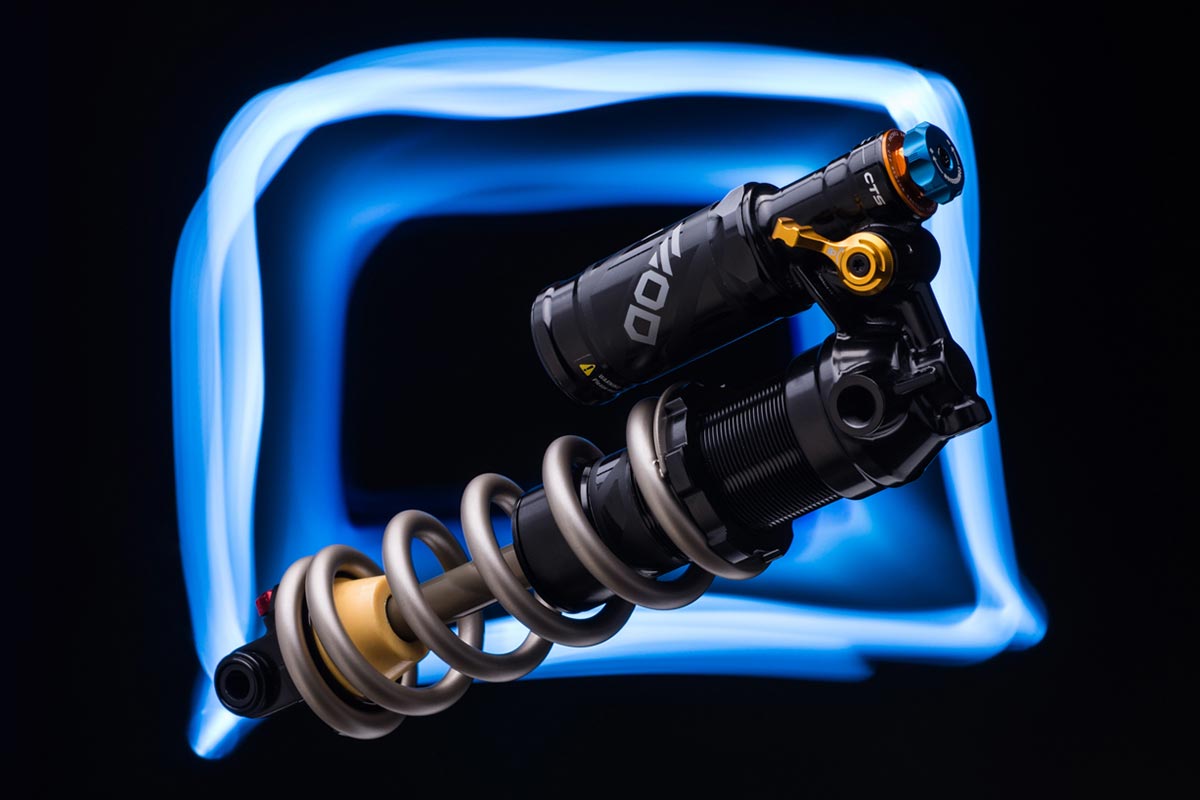You’ve seen it on the limited edition Hazzard Racing Orange Bikes. You saw it on Theo Galy’s and Kevin Miquel’s Sunn Kern at EWS Zermatt. The teasers end here. Formula’s first ever coil shock is finally unveiled with its stickers on; the Formula Mod has landed. And, we can now share with you that it does feature swappable CTS valves as you’ve seen on Formula forks. Here’s the need to know.
Formula Mod Coil Shock
We first got to see the new Formula Coil Shock at the Winter Bike Connection event in Massa Marittima, Italy. It was bolted to an array of bikes that were largely unsuitable for my 5ft 4″ frame. I did swing a leg over a Mod-rocking Geometron and Sunn Kern but, given the formidable length I was fighting, my experience doesn’t qualify for a “first ride review”.
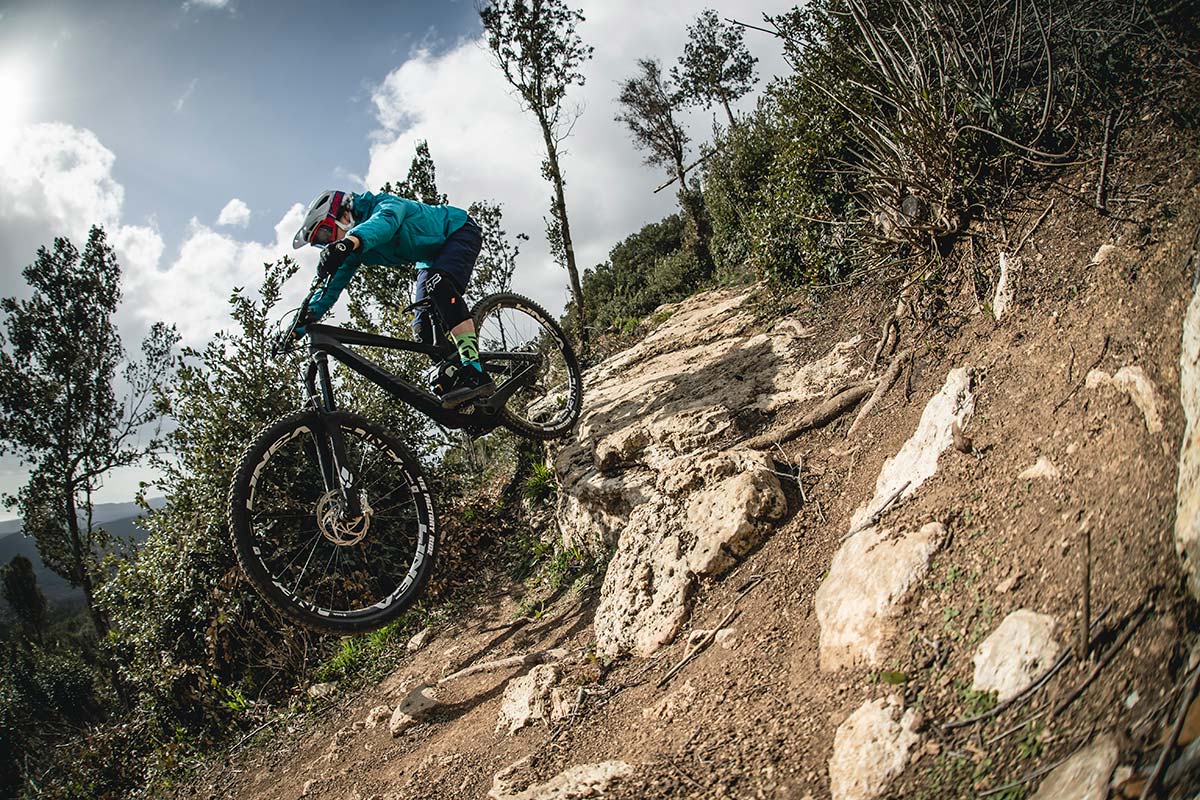
The Basics
In brief, the Formula Mod is a coil shock for mountain biking. Specifically, enduro mountain biking. Formula offer the Mod in two standard mount sizes and two Trunnion mount sizes.
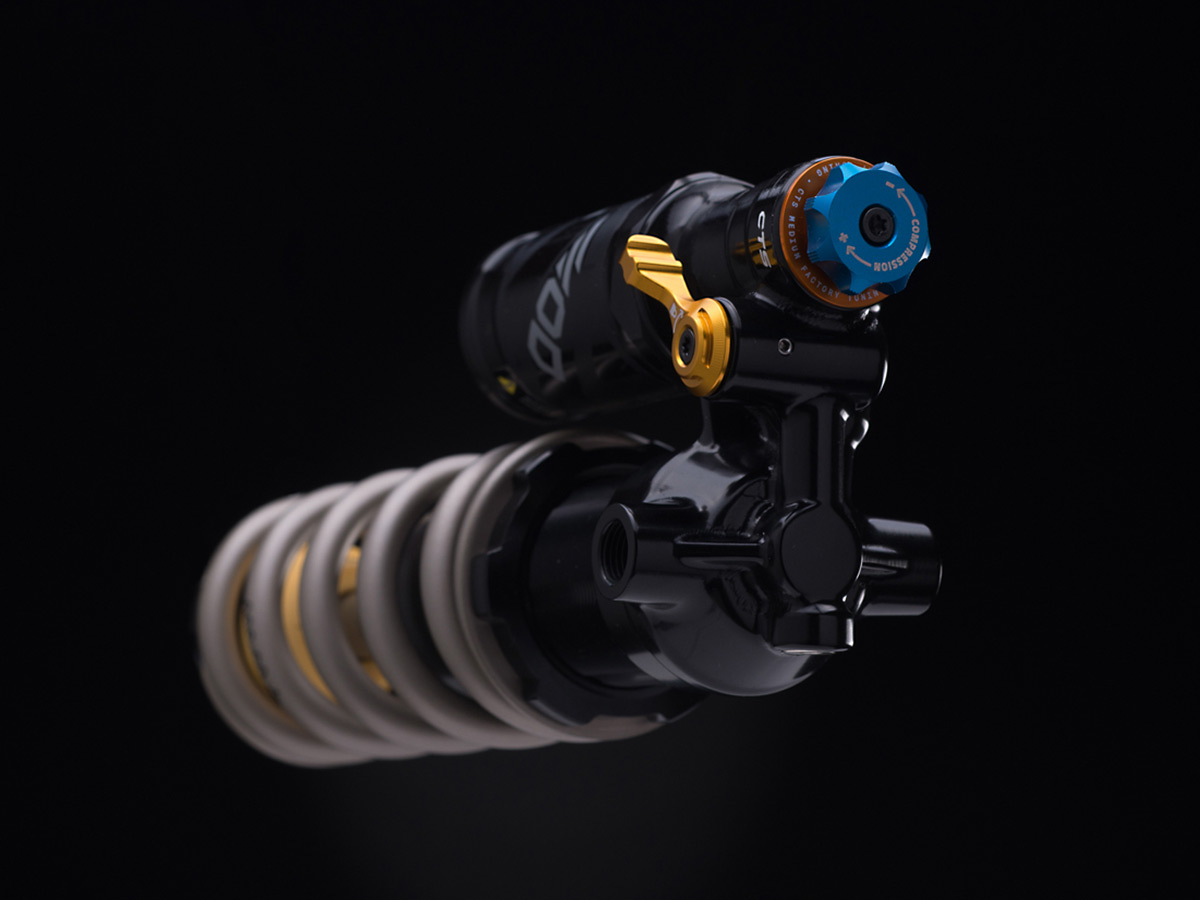
- Standard Sizes: 210mm x 55mm, 230mm x 65mm
- Trunnion Sizes: 185mm x 55mm, 205mm x 65mm
- Coils (lbs/in): 300, 350, 400, 450, 500, 550, 600
- High Flow: 30mm Internal Piston
- Adjustments: Compression, Rebound, Lockout, Coil Spring Preload, CTS
- Claimed Weight: 670g (210mm x 55mm, 300 lbs/in)
- Colors: Ultraviolet or Titanium
It features a lockout, compression and rebound adjustments, and you have a choice of six different spring rates. Super. So, what makes it different from any other coil shock on the market?
CTS Valves
The new coil shock from Formula is a modern piece of high-end suspension, with a difference. To understand it, you’ll need to take a step back from what you think you know about suspension adjustments, and think a little differently.
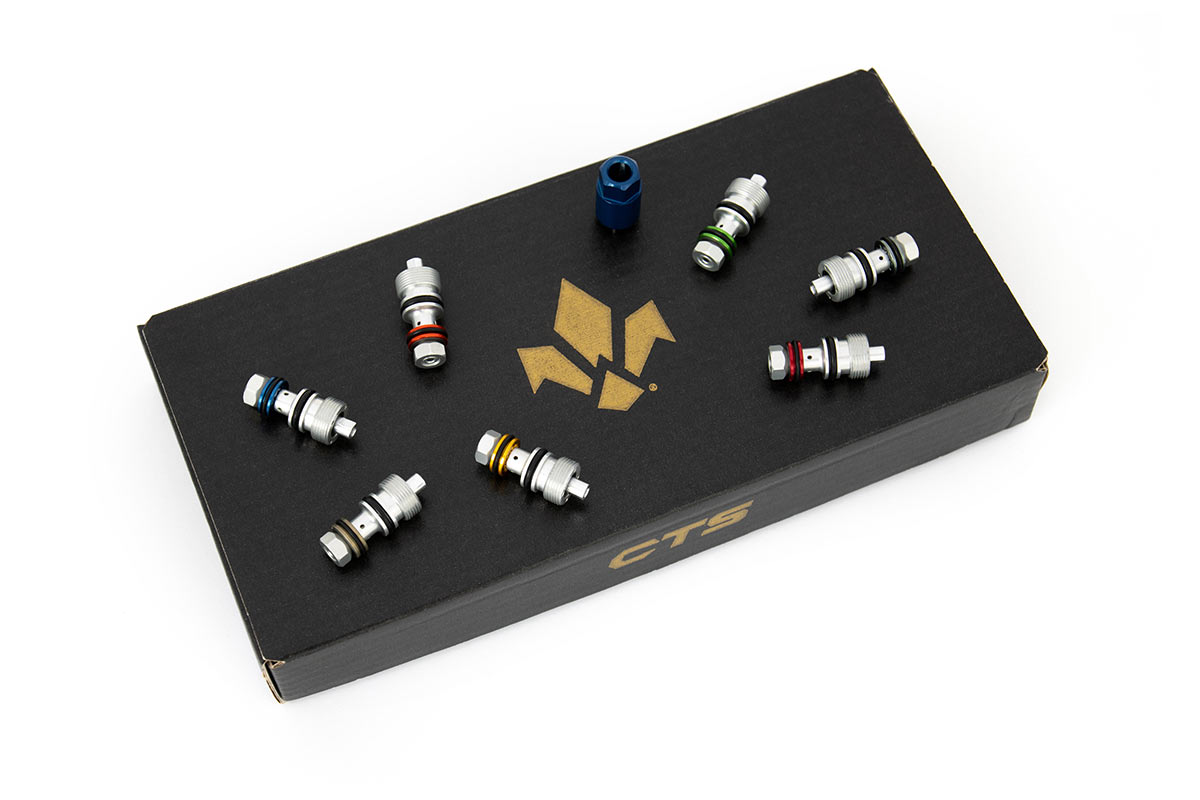
You’re familiar with high speed compression, low speed compression, high speed rebound and low speed rebound adjustments, right? Great. On my new Fox 38 fork with the GRIP 2 damper, I have a total of 48 adjustments I can make between those four parameters. I’m not about to do the math but, that is a lot of different possibilities!
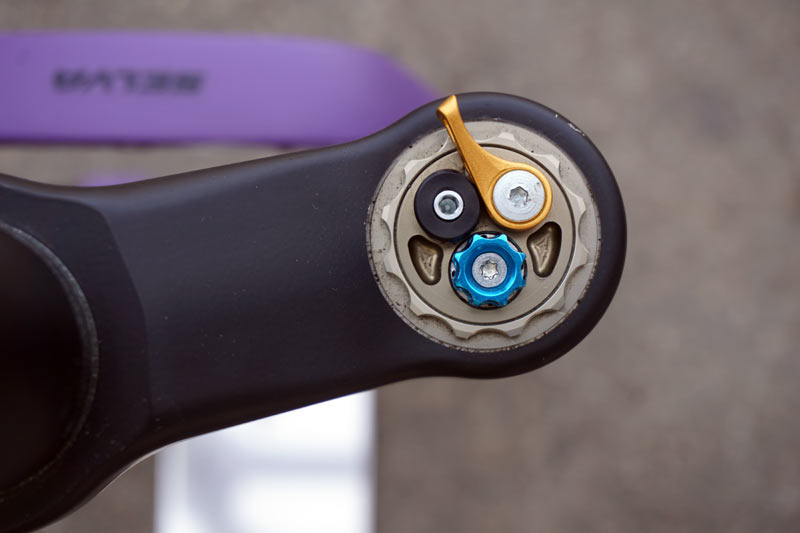
Why then, in the race pits, do we see mechanics performing complete tear downs of the pro’s suspension? They have a huge number of adjustments at their disposal. Why can’t they find a setting that works for them on that particular race track? It’s because they need a complete overhaul on the damping. That means a different shim stack.
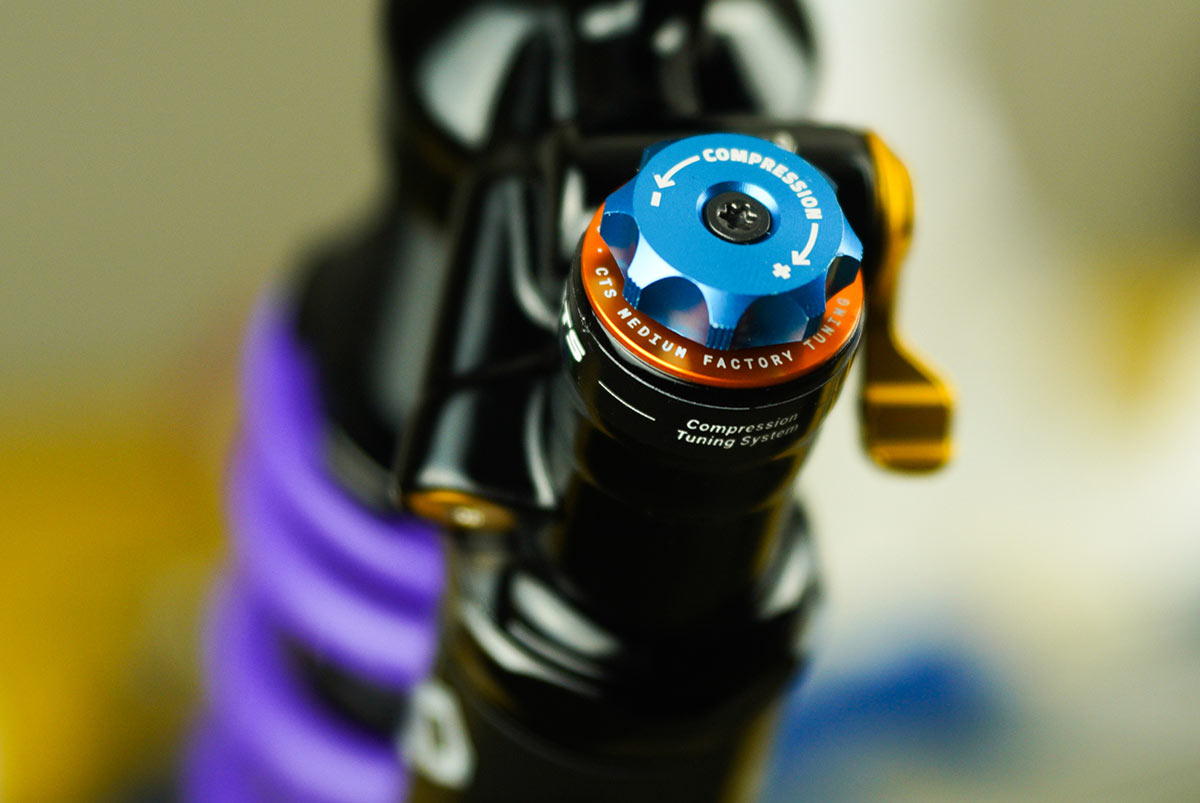
The shim stack is the array of metal shims within the damper that control the nature of the oil flow through the system. It is the shim stack that dictates the damping properties of the fork or shock.
On the Formula Mod Coil Shock, and some Formula forks, the shim stack comes in the form of a CTS Valve, or Compression Tuning System Valve. Formula offer up to seven of these CTS Valves on their forks – for the Mod, they offer just three.
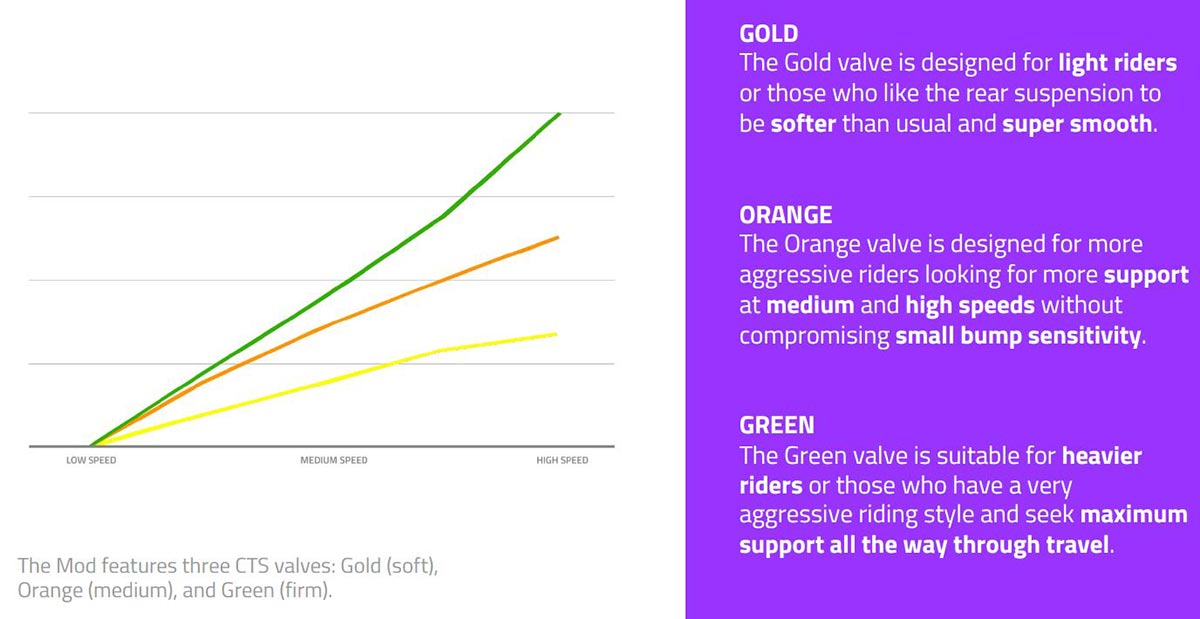
Compression and rebound is still adjustable, of course. It’s more of a fine tune you’d make at the trail side, after choosing the correct CTS valve for you. At least, that’s how I understand it.
How do you change the Formula Mod CTS Valve?
The guys at Formula show us how to change the CTS Valve in this video tutorial.
How many shocks have you re-shimmed? For me, the answer is one. The only shock, or fork for that matter, I’ve ever re-shimmed is the Formula Mod Coil Shock. My mechanical expertise is basic at best. But, with some simple instructions from Vittorio at Formula, I was able to change the CTS valve on the Formula Mod within around 10 minutes. And, it didn’t require any special tools.
Formula Coil Shock Piggyback
So, we got a little side tracked by the CTS Valves. But, the Formula Mod has a couple of other noteworthy features too. You’ll notice the massive piggyback. Unlike a lot of piggyback shocks, the Formula Mod houses a bladder as opposed to an Internal Floating Piston (IFP).
As the oil flows through the damping circuits, it compresses. That compression is either delivered by the Internal Floating Piston or a bladder. Both mechanisms serve to keep the oil separated from the air, but have different ways of going about it.
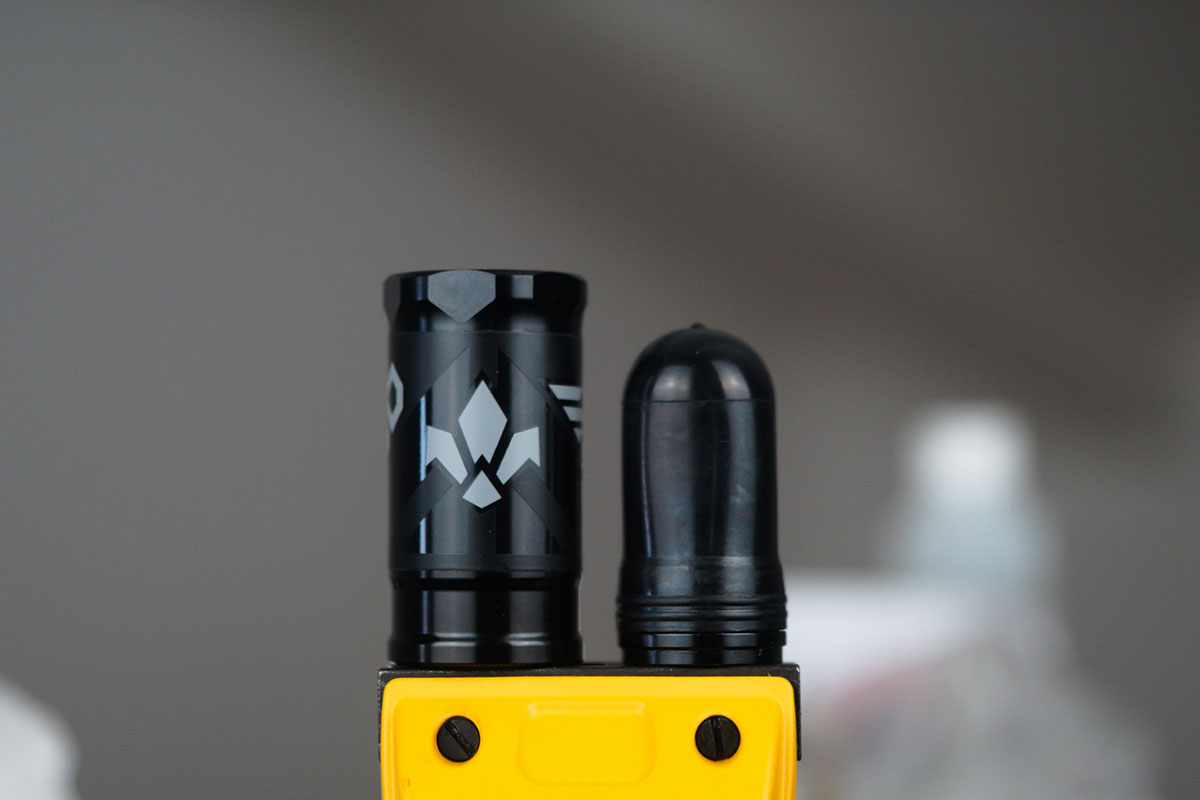 On the Formula Mod Coil Shock, the bladder within the piggyback is pressurized to 95 PSI with air (some use Nitrogen). As the oil flows through the damper, it compresses against the air-filled bladder, offering resistance. Here’s why a bladder offers advantages over an IFP.
On the Formula Mod Coil Shock, the bladder within the piggyback is pressurized to 95 PSI with air (some use Nitrogen). As the oil flows through the damper, it compresses against the air-filled bladder, offering resistance. Here’s why a bladder offers advantages over an IFP.
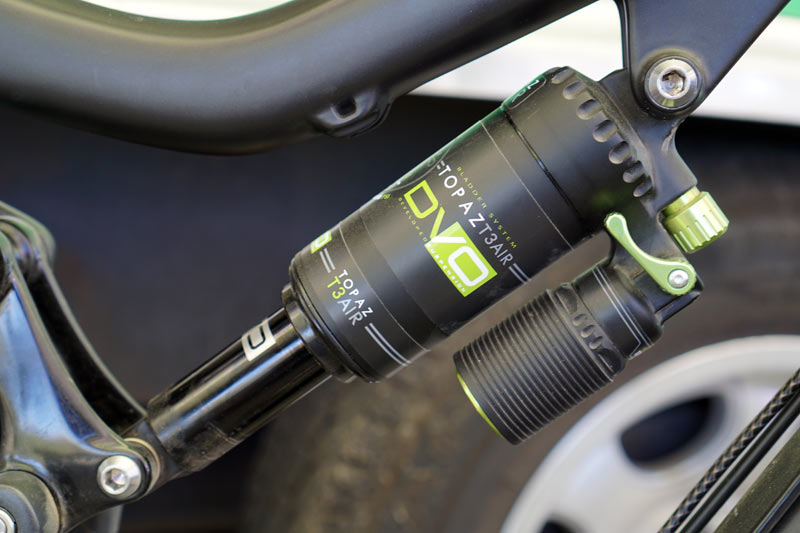
First up, it doesn’t suffer from stiction. In an IFP, seals introduce stiction into the system, meaning a threshold amount of force is required to get the IFP moving in the first place. You may have chosen a coil shock because it doesn’t suffer from the stiction that an air shock does, so it’s likely you don’t want stiction present in your damper either.
Secondly, the lack of seals also means a lack of friction. Less friction equals less heat generation. Formula chose the bladder system as it is very resistant to over-heating. That’s something you want to avoid as heat can cause the air to expand, and the oil to get thinner, changing the damping properties of the shock significantly.
Vittorio says the bladder makes the Formula Mod a very reliable shock for long alpine descents.
Bottom-out Bumper
The Formula Mod Coil Shock features a beefy bottom-out bumper. This is more than just a rubber bung. Formula take lessons from their sister company Tech Suspension who specialize in suspension for Trials Motorbikes.
This bottom-out bumper is a motorcycle-derived design that allows optimal management of the last part of the travel. It should allow riders to use the last millimetres of the shock stroke with a smooth feeling, and without an unnecessary bang.
Pricing & Availability
The Formula Mod Coil Shock is available for pre-order now, with shipping starting from November 2nd. It will set you back £643 / €699 / $829 USD. Mounting hardware is available in the following sizes: 20×8, 22×8, 25×8, 30×8, 35×8, 40×8, 22×10, 25×10, 30×10 (mm).
